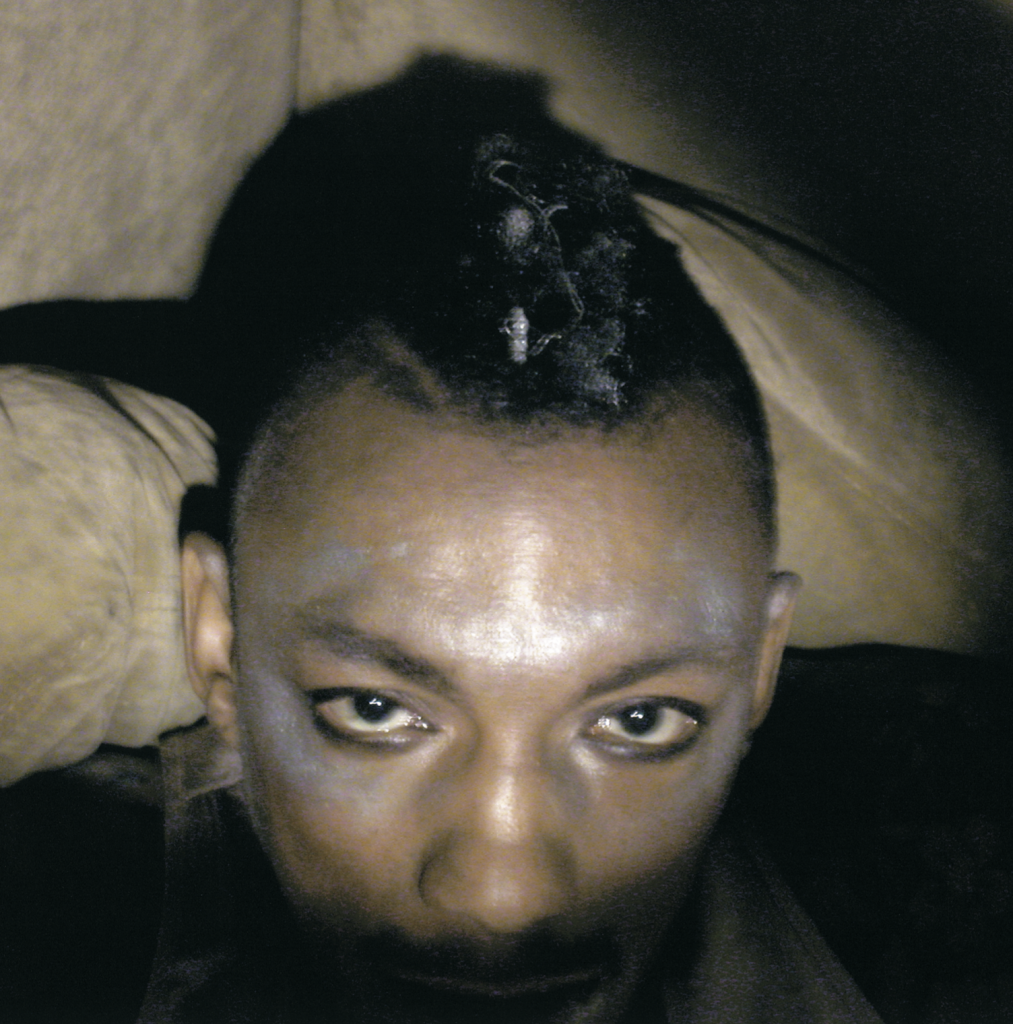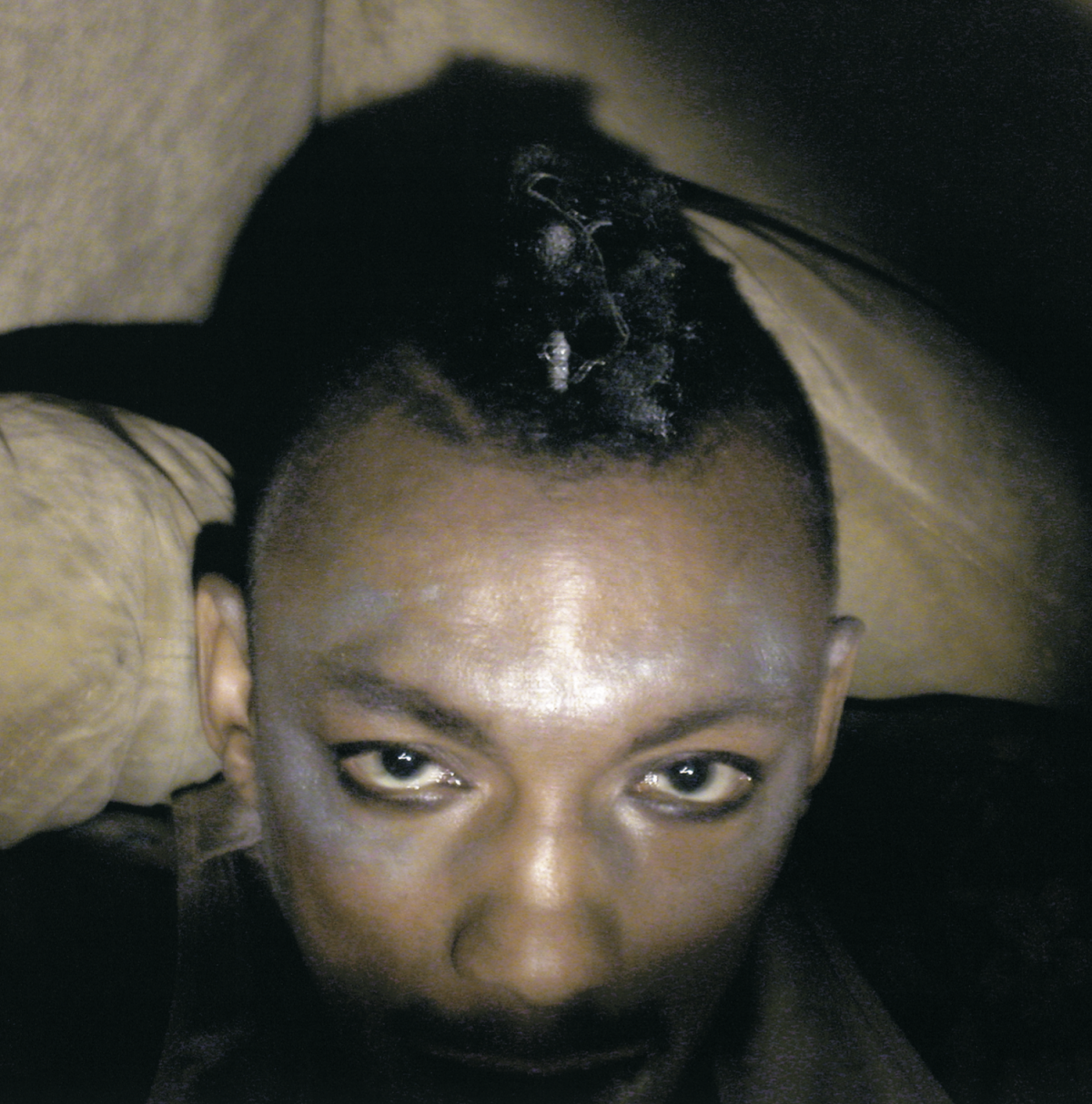
“They used to call me Tricky Kid/I live the life they wish they did.” —“Tricky Kid,” 1996
As the resident high priest of British downbeat, Tricky (given name: Adrian Thaws) is one of few artists who can legitimately claim to have resided at ground zero of a significant musical movement, clearing the path for an entire genre of acts (Portishead, Sneaker Pimps, etc.) and pointing the way toward the eventual merger of rap and alternative rock. Tricky was an original member of Bristol’s Wild Bunch posse (the loose-knit hip-hop collective that would spawn Massive Attack and Soul II Soul); his stoned raps proved a pivotal part of Massive Attack’s soulful 1991 classic Blue Lines. He eventually signed a solo deal allowing him to record side projects under various names (prior to the Wu-Tang Clan’s adoption of a similar business model), releasing trip-hop masterpiece Maxinquaye in 1995 and the deeply paranoid Nearly God in 1996. But just as Tricky’s career edged skyward with the dark, critically adored Pre-Millennium Tension later that year, he veered off in a curious direction, releasing a series of increasingly unfocused albums culminating in 2001’s Blowback, which injected disjointed ragga sequences into bland collaborations with the Red Hot Chili Peppers, Live and Cyndi Lauper. Now on a new label (Sanctuary), residing in new environs (Los Angeles, after years of living in New York) and sporting a new female vocal foil (the exotically accented Costanza Francavilla), Tricky has released his most energized, coherent work in years. Vulnerable could very well be the galvanizing action that sets Tricky’s career and visionary sound back on its rightful course.
MAGNET and the Tricky Kid discussed the relative merits of MTV, PJ Harvey and L.A. freeway life.
Electronica was once referred to as “the next big thing,” post-grunge. Now, the sounds associated with subgenres like trip hop are just another moving part in the urban music machine. How has this played a role in the direction of Vulnerable?
What’s been happening the past few years is that I was able to record all the time. My business world was a mess—I was concentrating on the music and didn’t notice. But all of a sudden, I’ve got no money. Someone the other day asked about my record sales going down the last couple of albums; I’d never even noticed it. They seemed quite shocked. Some of the reasons were actually on purpose.
What do you mean by “on purpose”?
I don’t mean to destroy my career, but do something that radio is never going to go near. When Maxinquaye came out, I was too successful too quickly and had to do an album where I wasn’t going to become a pop star, which was Nearly God. There are times in my career when I’ve done things so that I will sell fewer records. Before Blowback, I was broke and had to start all over again.
There’s a more hopeful tone to your songs now. It feels less claustrophobic and paranoid than something like Pre-Millennium Tension.
In the beginning, people sang through their suffering, sang about the burden and long hours of work, sang about the spirituality of passing time and not knowing why you’re here. Now it’s become, between MTV and McDonald’s, nothing but icons: “I don’t have to be an artist, I just have to be famous.” It doesn’t matter what music the fans like. I don’t like to call my people fans—they’re likeminded people. Fans are just followers. My people are madly intelligent, very different individuals. I make music for them. Fuck everybody else.
What’s it like to be an artist who falls between the cracks stylistically? The reason critics invent terms like “trip hop” is because the music you’ve chosen to pursue isn’t hip hop or alternative rock, but something in between.
It’s not just that all my albums are different; my singles are, too, so that makes it even harder. One single might be a rock side, one might have a reggae vibe. Loyalty—that’s power. Selling five million records—that’s not necessarily power.
You grew up in Knowle West, a really rough part of Bristol. What role does your upbringing play in your music?
My great-granddad was half Spanish, half black. My mum was half African, half white. My grandmother was half Welsh. I’ve got an Italian name—Adrian—although I don’t really know why. [Laughs] My family is totally mixed race. We grew up in the white ghetto. There were only four black families in the whole place. It wasn’t at all racist, though; my family’s lived there for generations. We were treated with respect. I could hang with the white guys, listening to skinhead music, and I also had a girlfriend in the black ghetto. I could fit into both worlds. I can’t say that I grew up as a black guy or white guy. My friends all had one thing in common: We were all poor. I got brought into the industry by (Island Records founder) Chris Blackwell, and one of his employees told me when Maxinquaye came out, “You’re not going to get any radio, because your music’s too different and because you’re black.” Things have changed, but back in those days, I was one of the first black guys to be on the cover of The Face and Melody Maker. What’s funny is my music’s not got any color to it. My fanbase is more white than black. When I was on Island, people were saying, “We need to increase his urban marketing.” That’s not the right way of dealing with music. You shouldn’t be promoting to a specific race of people. That’s like inverted racism. Just put it out there; whoever finds it, finds it.
So is it fair to say you believe in fate?
I believe in magic. [Laughs] Ask my band—they won’t even play cards with me. I believe in everything and nothing at the same time.
What do you make of artists who seek out the hippest urban producers, such as the Neptunes, to lend their work a certain credibility?
Musically these days, black people want to be white, and white want to be black. It’s crazy. A girl came up to me and said she’d heard Justin Timberlake’s new album, and it was supposed to be good “because it’s done with hip-hop artists now.” And I was like, “So?” [Laughs] That’s gonna make Justin Timberlake good? Some people think to be with the right producer or getting breast implants, that’s enough. No. It’s down to old-fashioned good songwriting.
Is there anyone you’re longing to work with?
I’m gonna work with Polly Harvey. We’ve been talking for the past four years—properly for the past two months—and by the end of this year, we should have an album. I’d love to work with Kate Bush.
What’s it like for you, living in L.A.?
I get more things done in L.A. than in New York. In L.A., I get up, I train, go to the studio, have a sauna, come back to the studio, cook, clean the house. I’m not into being in the clubs all night at the moment. I’m into working, making music, keeping fit. I’ve got my inspiration back. I’m trying to open a tai chi club in L.A. now with the aid of my teacher. He thinks I’m good enough to teach beginners.
So as long as there’s something you haven’t accomplished, that gives you the impetus to do it?
Exactly. I’ll tell you what else I love about L.A. Two months ago, I went to go see the Breeders in this little bar. A couple hundred people, you couldn’t move, shitty P.A. Fucking brilliant. New York ain’t like that any more. I stopped going to live shows when I was living in London and New York; I’d become a club man. Now I’m going to live shows again. I can’t be bothered to go to the big arenas. Seeing the Beastie Boys at Madison Square Garden was my worst nightmare. Too many fratboys acting like toughs, drunk out of their heads.
Well, no one “discovers” music at a show with 25,000 people.
It’s a load of bullshit. It’s just money-making. You might as well go see Billy Graham.
—Corey duBrowa






